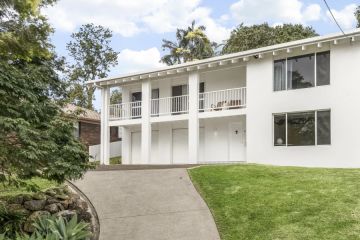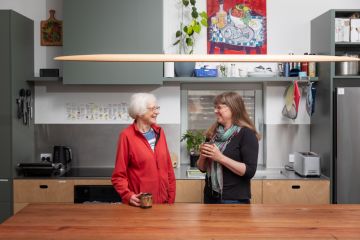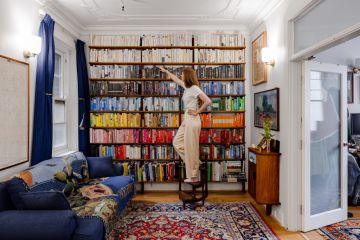Will it pay off? How to know if it's worth spending your money on a home renovation
Dinner-party conversations can be dominated by a common theme: the discussion of new builds that leaves the comparatively simple idea of an extension or alteration on the sidelines.
The dinner invitation normally stems from the couple who have just built their new home and they want to show it off.
The mere thought of building from scratch, or a move, is too much to cope with for some.
For those who have outgrown their home, the solution tends to be steered towards an extension, enticed by maximising every square metre to provide a large family home and, of course, the hope of boosting the profit when eventually sold.
Residents in NSW have certainly embraced major alterations to their homes, pumping almost $2.902 billion into the economy during 2017 based on ABS Construction Work Done figures (seasonally adjusted).
The value includes structural alterations, extensions, additions and conversions to existing homes.
The value of alterations completed last year is a slide from 2016 at just over $3.014 billion and well below the record notched in 2004 at just over a whopping $3.464 billion.
The amount of value that alterations can add to your home depends upon several factors, from the length of time you will continue to live in the home to the scope and quality of the work completed.
- Related: How your kitchen can add value
- Related: Choosing between renting and selling
- Related: Increase your home’s value this weekend
Ideally, investing in an alteration should be viewed as a mid to long-term prospect, giving you the enjoyment of the added floor space in the meantime.
If the prospect of moving is on the horizon, the short-term approach could be to obtain the planning permission and avoid building.
Depending upon the scope of work, often the financial outlay of acquiring the appropriate approvals can become an added value when you are selling.
Decide whether you’ll be in your home for the next year or two, or perhaps a decade, to help determine whether the value added will outweigh the cost of the extension.
Your own financial situation is also a key factor when deciding to invest in an alteration, dependent upon your existing mortgage size, the funding required for the extension and the potential home’s value.
No one wants to risk the situation of negative equity. That said: do consider the quality-of-life factor that adding an extension can bring, which is why several homeowners choose to extend or alter their homes: regardless of the increase to its value.
We recommend
We thought you might like
States
Capital Cities
Capital Cities - Rentals
Popular Areas
Allhomes
More
- © 2025, CoStar Group Inc.







